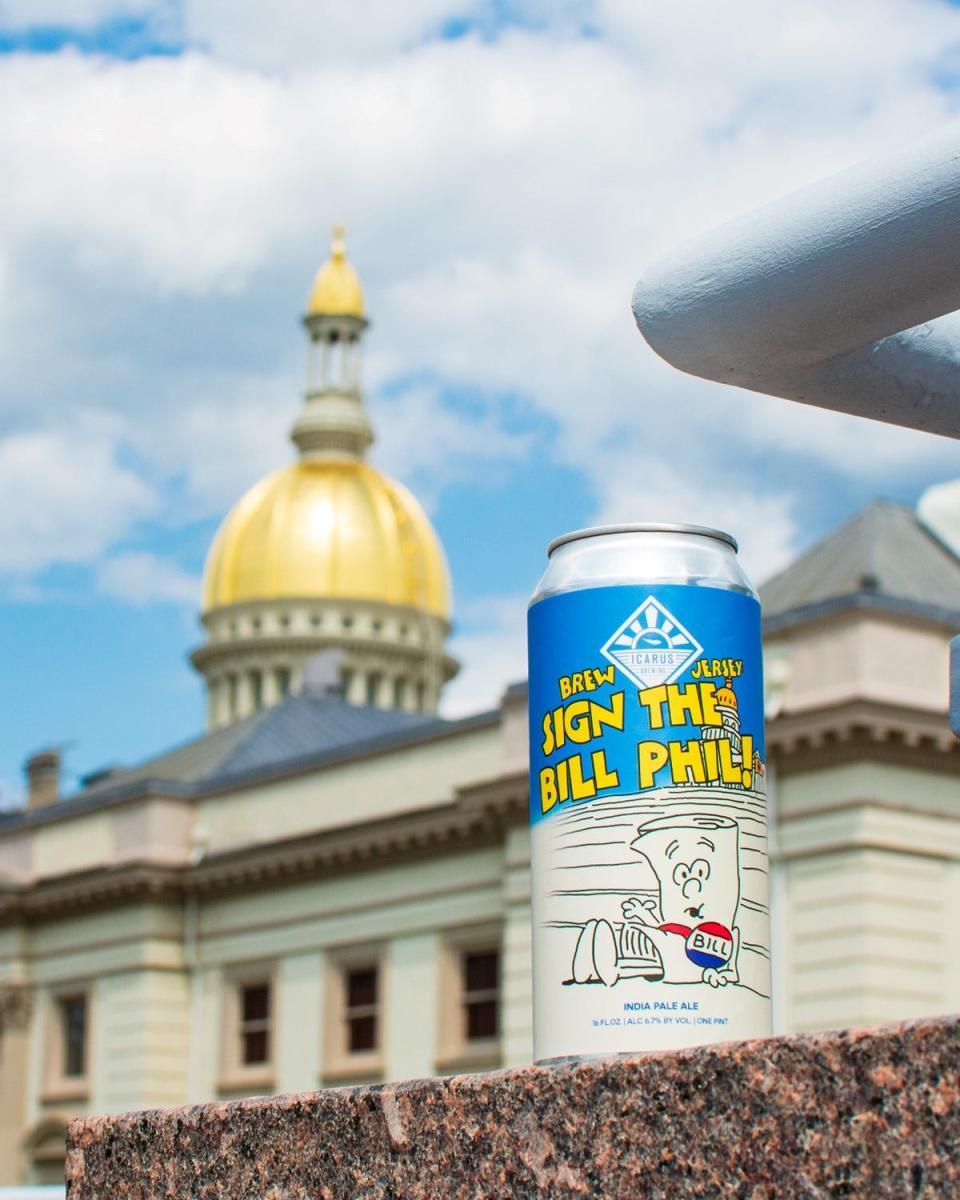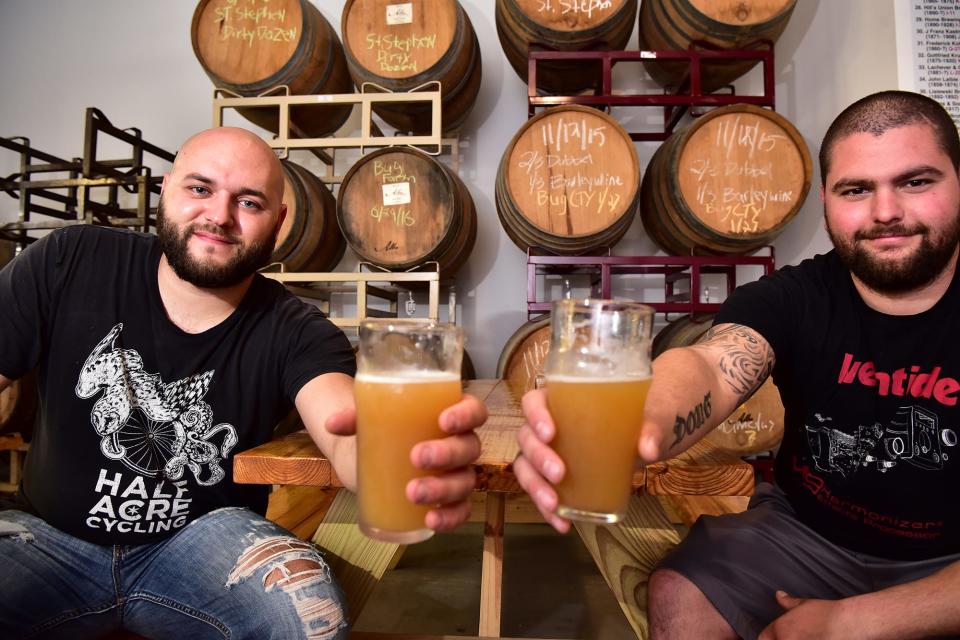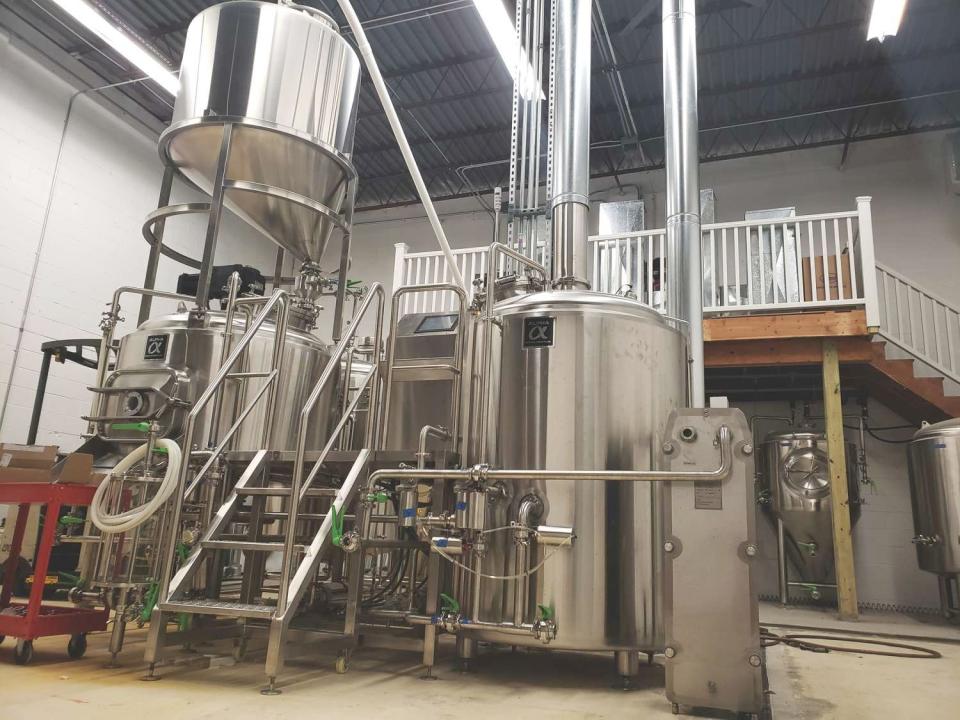'An important moment': Breweries react to New Jersey's new liquor license reform bill
- Oops!Something went wrong.Please try again later.
New Jersey craft brewers expressed relief at Gov. Phil Murphy’s recent signing of a bill easing some restrictions on their businesses they say was long overdue. But they said there is more work to be done before the state’s brewery industry is on equal footing with its competitors in neighboring states.
“There’s a celebratory feeling, but it’s also kind of like celebrating someone taking their foot off your neck,” said Mike Jones, an owner at Hackensack Brewing Company. “This is an important moment for craft beer in New Jersey, but we still have a long way to go to be on the same footing as the states around us.”
The liquor license reform bill, signed by Murphy on Jan. 16, just before the legislative session’s deadline, combined parts of a bill that previously passed both chambers with some of the concerns from Murphy’s November conditional veto.

The legislation allows license holders for New Jersey breweries, cideries, meaderies and craft distilleries to hold 25 off-premises special events and an unlimited number of special events and private parties onsite.
It will also allow the hiring of servers and wait staff and the sale of some food items, such as chips and packaged snacks, and non-alcoholic beverages. The new law will increase the number of barrels a brewery can manufacture from 10,000 to 300,000 per year and gets rid of a requirement for a tour before a customer can try a beverage.
In 2018, the state Division of Alcoholic Beverage Control announced a ruling that limited breweries to 25 on-site activities, 52 private parties and 12 off-site events, like festivals and town celebrations, per year. Collaborations between breweries and food vendors or food trucks were prohibited, and limits were placed on what types of live or recorded music could be played, the size of televisions and how many could be on at the same time.

That ruling, which the ABC said was a way of balancing the interests of breweries with those of restaurant and bar owners, who must pay hefty fees for liquor licenses, was put on hold while the agency researched how the regulations would affect the industry and its customers.
The conditions placed on brewery licenses went into effect in July 2022. The state’s breweries pushed back with special-release beers and lobbied lawmakers to ease the rules.
Last year, legislation that would have repealed the restrictions was unanimously passed by the state Senate and Assembly, only to be conditionally vetoed by Murphy, who said he wanted to include it in a more comprehensive liquor license reform bill.
“We all got a very unfortunate crash course in politics,” said Scott Wells, co-owner of Bolero Snort Brewery in Carlstadt. “This legislation targets some of the more absurd obstructions we’ve dealt with. But even with this passed, breweries still don’t have anything close to parity with our neighboring states.”
Pennsylvania breweries can have up to five remote tasting rooms. Breweries in New York can offer wines and spirits made in-state, and guest taps featuring other New York-made beers — a draw for customers that also showcases the state’s local goods, brewery owners said.

“I would love to be able to serve prepared food,” said Chuck Garrity of Death of the Fox Brewing Company. His Gloucester County brewery sued the state over the restrictions. Garrity said he is considering dropping the suit.
“The most important thing is by the tens of thousands our customers wrote their senators and governor’s office. If it wasn’t for them, this wouldn’t have happened,” he said. “I feel so relieved that now we can actually do some long-term planning for the growth of our business.”
Charles Aaron, owner of Jersey Girl Brewing in Mount Olive, said the “political game” to get to this point was frustrating and slowed what had been a fast-growing industry.
“I think it’s going to take time and support from the governor to undo some of the damage done,” he said.
The yearslong dispute over what breweries can and can’t do has damaged the industry’s relationship with bars in the state, Wells said.
Since 2021, Bolero Snort’s distribution to bars has fallen by 50%. Some of the downturn can be attributed to the pandemic, but some is due to a perception by some that breweries were trying to harm restaurants and bars, Wells said.
“What happened here became very damaging to the entire industry,” he said. “It’s great that now I can have trivia night or a TV that’s 66 inches, but that’s not going to make up for the money we lost by distributing to these bars. We need to rebuild those relationships.”
This article originally appeared on NorthJersey.com: Breweries react to new NJ liquor license reform bill

